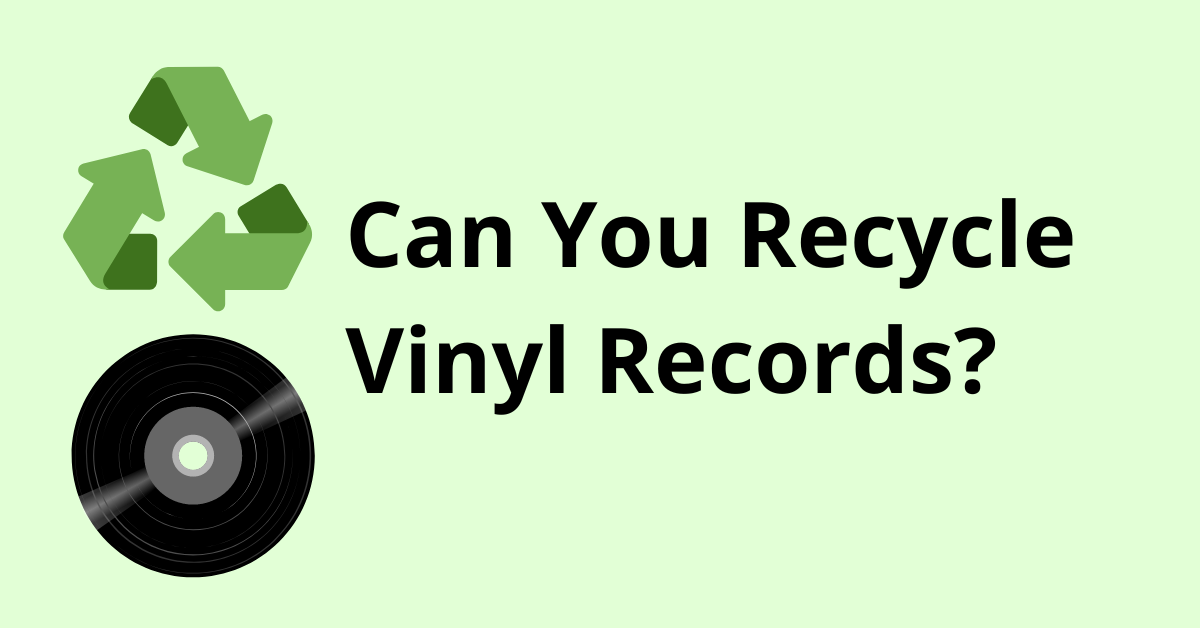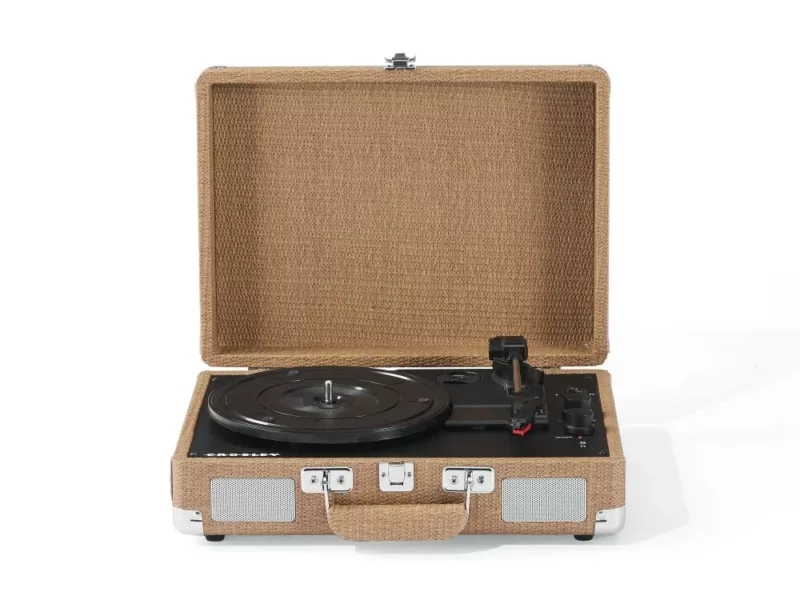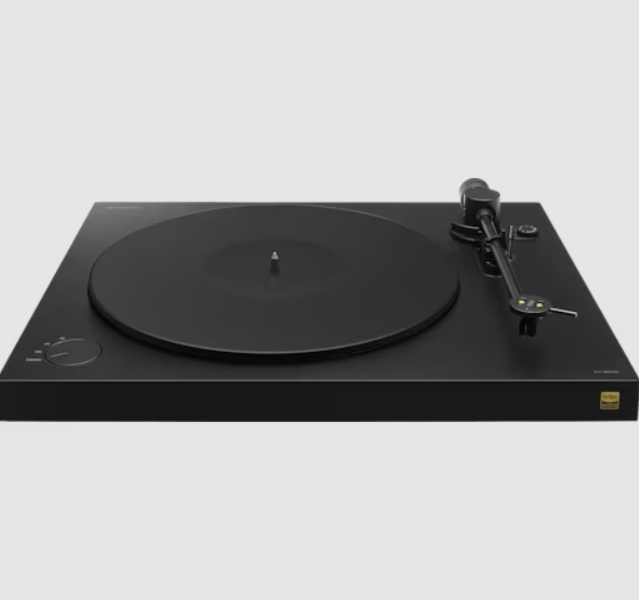People buy vinyl records to keep them forever, but did you know they have a playing lifespan of over 100 years?
Worse than this, PVC vinyl records take 1000 years to decompose, meaning your vinyl’s will long out-live you!
To be an environmentally-friendly record collector, it’s essential you know how to dispose of old or broken vinyl records properly.
In this blog, you’ll learn;
- If Vinyl Records Can Be Recycled
- How Bad Vinyl Records Are For The Environment
- The Carbon Footprint Of Vinyl vs Digital Streaming
- How To Get Rid Of Vinyl Records In An Environmentally-Friendly Way
- What Types Of Vinyl Records Are Good For The Environment
Can You Recycle Vinyl Records?
PVC vinyl records can now be recycled up to 8 times, but you will have to take them to a special PVC recycling facility if you want to recycle yours.
Almost all vinyl records are made from PVC (Polyvinyl Chloride) which is difficult to dispose of safely, due to the chemicals it contains. As a result of this, and the large amount of products in the world that are made from PVC, the process of recycling PVC records is one of the most advanced in the world.
That process is limited to only a few recycling firms with advanced technologies currently.
Are New Vinyl Records Recyclable?
99% of new vinyl records are made from PVC and recyclable at specialist facilities. However, there are manufacturers now making vinyl records with more environmentally-friendly materials and methods.
Florida-based company Tangible Formats for example, made a vinyl record made entirely from recycled ocean plastics.
While this is still made from plastic, it is using recycled materials so it is significantly better for the environment. Unfortunately, only 100 copies were made due to demand and the higher cost of production but they hope to do more in the future.
Some manufacturers also have greener processes than others when making vinyl records. Green Vinyl Records for instance, uses low-energy, low-waste manufacturing solutions to reduce the environmental impact of creating vinyl records.
Regardless of how your vinyl record was made, you should still know how how to recycle and reuse it.
How Do You Recycle Vinyl Records?
To recycle your vinyl records, search for PVC recycling plants in your local area and contact them directly.
You can only recycle vinyl records using specialist PVC plants and not your kerbside recycling collections.
Use this handy tool by RecycleNow to find your closest plant.
If you don’t have a vinyl record recycling plant nearby, the best thing to do for the environment, is sell or donate them.
Do Vinyl Records Have A Lifespan?
With love and care, vinyl records have a lifespan of over 100 years. This is true even with recycled PVC vinyl, as it can be recycled up to 8 times without loss of quality.
After 100 years, the quality of the PVC begins to degrade, meaning the quality and playability of your vinyl will diminish.
100 years may seem like a lifetime, but there are many people who collect vinyl records that were made in the 1950s. This means they could begin to degrade in just 30 years’ time.
At that point, you can either keep them, pass them on to others as a keepsake, or dispose of them. But how do you get of vinyl records safely?
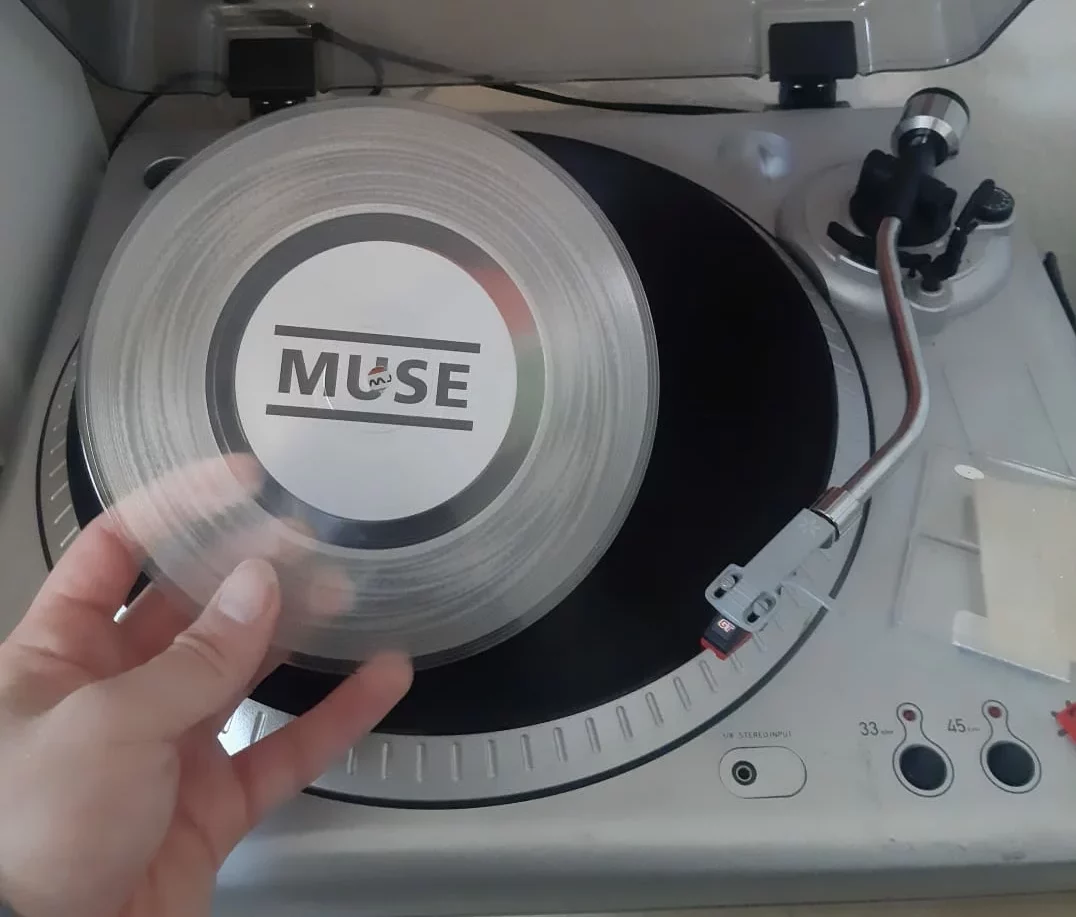
How Long Do Vinyl Records Take To Decompose?
If you’re hoping your vinyl records will be biodegradable in the dump, think again.
PVC vinyl records take 1000 years to decompose naturally and it is not possible to speed this process up.
Even if your vinyl records were recycled and made with more environmentally-friendly methods, they will still be an environmental burden unless they are kept safe for 1000 years. It’s impossible to know how they will be used over 1000 years however!
One upside, is that vinyl records are “non-disposable” products compared to other PVC-made products. This means that you can keep selling old vinyl records through the generations, even if their quality has diminished.
All we can do is hope that all future vinyl records will be made from recycled PVC and passed down with care through the generations.
Are Vinyl Records Hazardous Waste?
The process of creating products from PVC is the most environmentally damaging in the world, according to Greenpeace.
The production of vinyl records releases toxic chemicals, full of chlorine, which are released into the air, water and food chains as hazardous waste.
To make matters worse, toxic chemicals can be released if vinyl records are disposed of improperly or set on fire.
That’s why you should never put vinyl records in your local kerbside recycling bins. Chemicals released when attempting to recycle PVC vinyl records with standard recycling techniques will damage the process, causing recyclable products not to be recycled.
Fortunately, there are vinyl record manufacturers who can now reduce the hazardous waste that is produced but we are many years away from having fully green vinyl records.
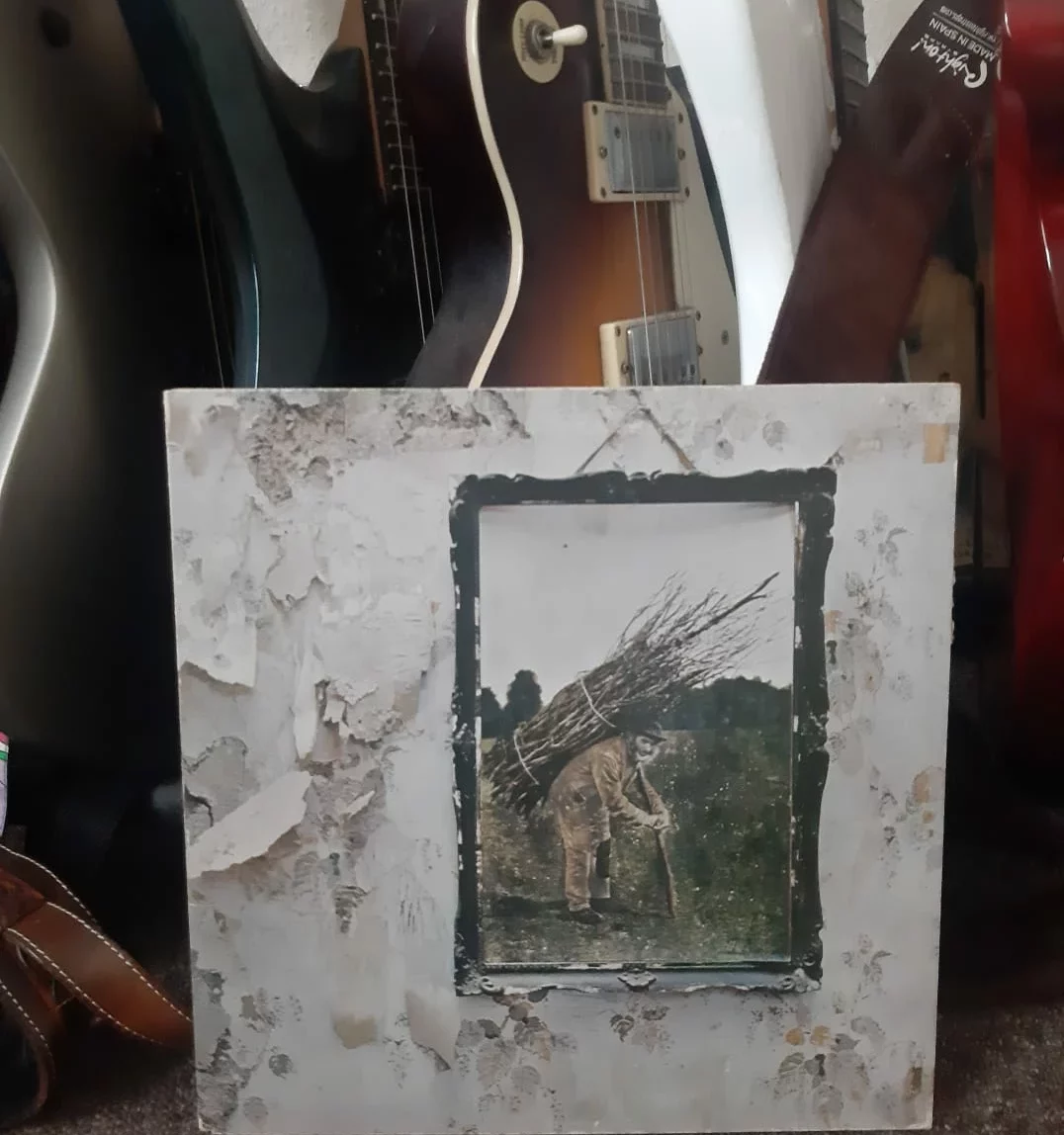
Can Vinyl Records Go In The Recycling Bin?
Never put vinyl records in the recycling bin at home. Local recycling facilities can’t recycle them and could release toxic chemicals, causing other recyclable products to be thrown away.
It also makes it difficult for local recycling plants to sort recyclable goods. Many local plants use a technique of bouncing light to sort waste into different plastics. As most vinyl records are black, the light bounces off them and means they can’t be sorted properly, disrupting the recycling process.
You may be able to recycle vinyl records at a specialist PVC recycling plant near you though.
I recommend using this this handy tool by RecycleNow to find yours!
How Is Vinyl Disposed Of?
PVC vinyl can be ground into pellets and melted to create other products like vinyl records.
The process of doing this is extremely difficult and only specialist recycling facilities can do it.
Vinyl can only be turned into other PVC products unfortunately, like piping or other vinyl records. The only other way to ‘dispose’ of vinyl records, is in landfill or by burning them. Unfortunately, at landfill it won’t decompose for 1000 years, and burning vinyl records causes toxic chemicals to be released into the air.
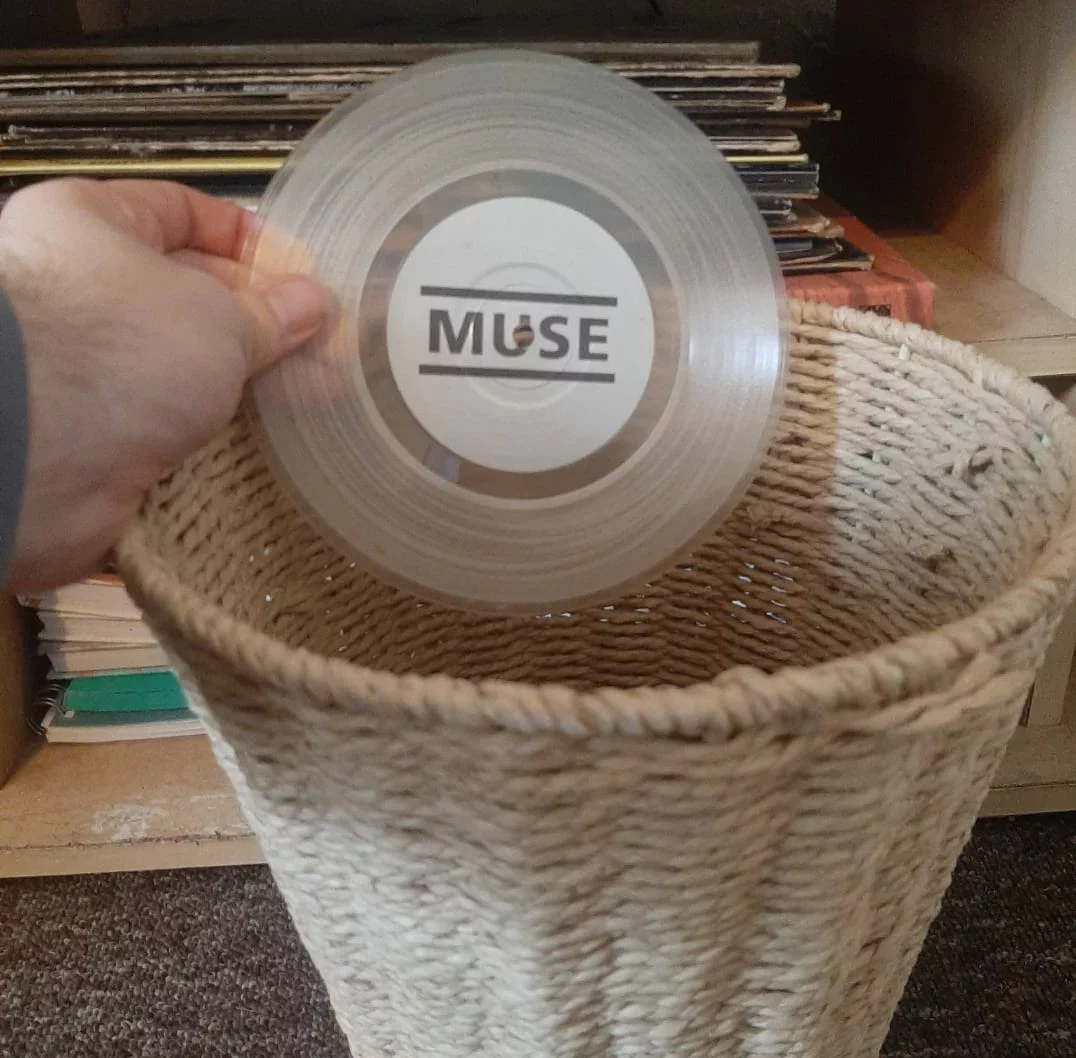
So, How Bad Are Vinyl Records For The Environment?
Keele University researchers estimated that vinyl records have a carbon footprint of 500 grams of C02 from the production process alone. That could be closer to 2 kilograms when factoring in transport.
The carbon footprint of streaming music digitally is around 55 grams of C02 per hour.
You would have to stream an album for up to 40 hours to make it’s carbon footprint the same as vinyl.
If you want to buy music in an environmentally-friendly way, you should think about how many hours you will likely spend listening to the song over your lifetime.
The bottom line is, vinyl record production is bad for the environment due to the toxic chemicals it releases. There also aren’t man specialist PVC recycling plants, meaning more vinyl records are thrown away than recycled.Even if your vinyl record is made from recycled material in a low-waste facility, it won’t decompose for 1000 years. This isn’t bad for the environment if it is kept instead of thrown into landfill.
How Do I Get Rid Of Vinyl Records?
The best way to get rid of vinyl records is to sell or donate them. You could also send them to a PVC recycling plant if you can find one locally.
Vinyl records have a lifespan of 100 years or more. Passing them down through the generations will ensure they last longer without going to landfill. I have most of my vinyl records from my Dad, such as my Led Zeppelin vinyl collection!
As recycling techniques improve over time, it might be possible for PVC records to be recycled at home.
The truth is, you only have three options to dispose of vinyl records currently;
- Recycle your vinyl record via a specialist PVC recycling facility
- Sell, donate or gift your vinyl record
- Throw it in the bin. We don’t recommend this because it will go into landfill where it could release toxic chemicals.
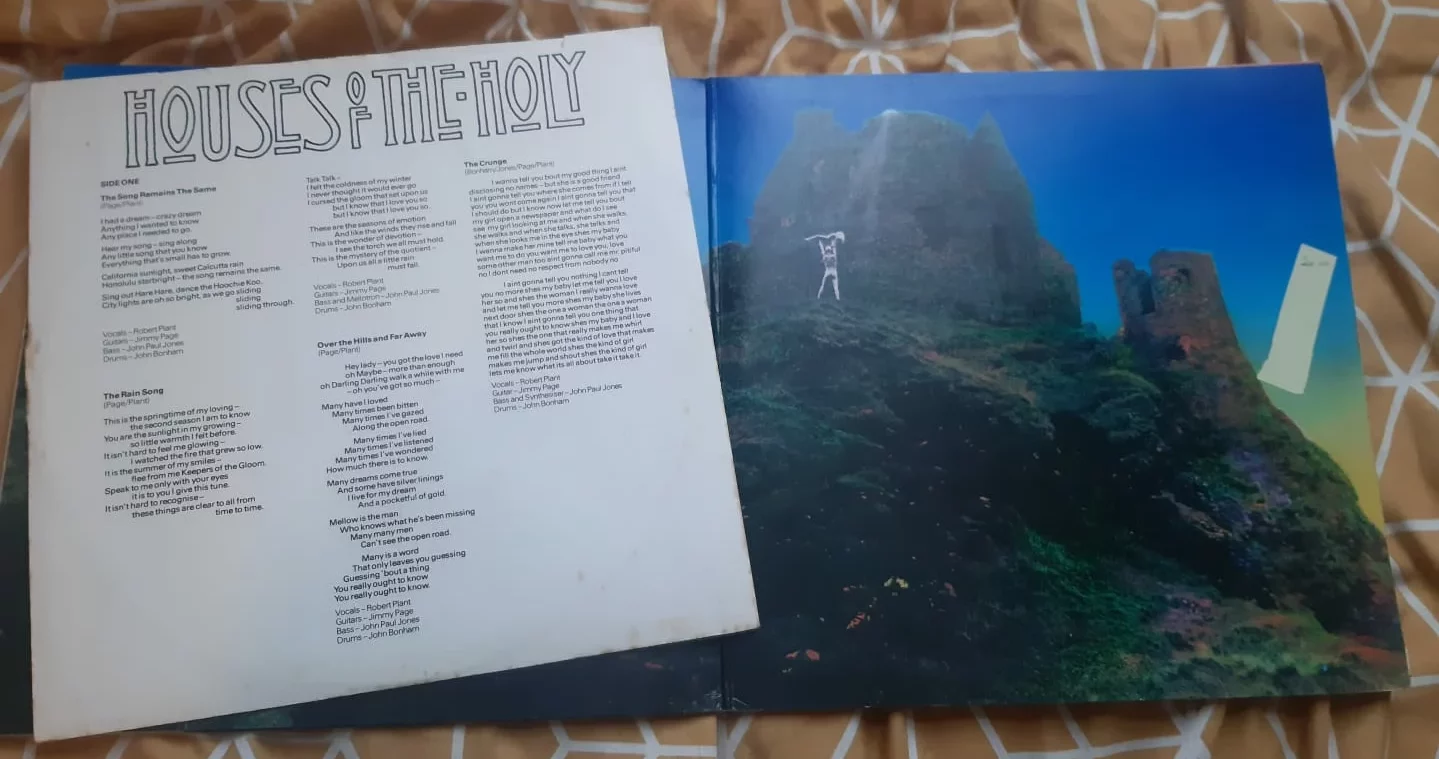
How Can I Be An Environmentally-Friendly Vinyl Record Collector?
The only way to be a fully environmentally-friendly vinyl record collector, is to purchase recycled vinyl records and pass them down through the generations. This way, you do everything you can to ensure it won’t be thrown away and it stands a chance of being used until it eventually decomposes naturally.
The best thing to do as environmentally-conscious vinyl collectors is push for change within the industry.
If every vinyl record collector decided to exclusively buy recycled PVC records, this would certainly send a message!
Conclusion
Vinyl record production is bad for the environment, releasing toxic chemicals and 500 grams of C02 on average. The exception is with a few newer manufacturers who create less waste.
PVC vinyl records can be recycled into other PVC products, but only at specialist recycling facilities up to 8 times.
Even if all your vinyl records were recycled 8 times in their lifetime, they still wouldn’t decompose for 1000 years.
To be as environmentally-friendly as possible, make sure you keep your vinyl records for as long as possible, and then sell or donate them on.
Be sure to check out our blog on the top reasons why people collect and listen to vinyl to find out if it’s the best choice for you!

